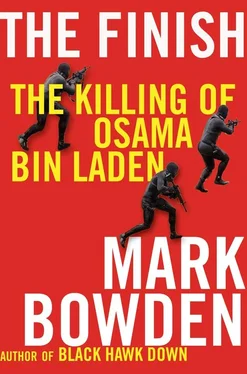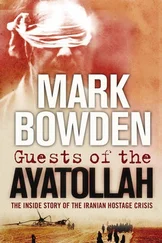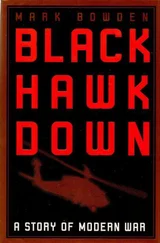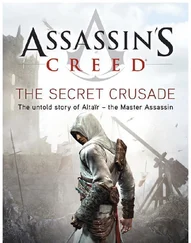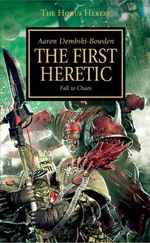This was the problem posed by 9/11. The answer was information. Finding the enemy has long been one of the most basic challenges of war. All al Qaeda did was up the level of difficulty. They lived and worked scattered all over the world, using global telecommunications to stay linked. Given the complexity and international nature of those links, the use of pseudonyms and all the tricks of spy craft, how was this new enemy ever to be found?
The seizure of the Sinjar Rolodex and the subsequent takedown shows how. Six years after the 9/11 attacks, deep into two wars, still haunted by the defiant image of a free Osama bin Laden, the United States of America had one strong consolation.
It had figured out exactly how to fight back.
September 11, 2001
Just before eight o’clock on a brilliant sunny Chicago morning, Barack Obama was driving up Lake Shore Drive when the music on his radio was interrupted by a news bulletin. A plane had crashed into one of the World Trade Center towers in New York City. He thought little of it. He assumed it meant some poor Cessna pilot had screwed up badly.
The Loop was a familiar fifteen-minute commute from Illinois State Senator Obama’s house in Hyde Park. To his right stretched the flat expanse of Lake Michigan and ahead, on his left, was the soaring skyline, anchored by the black monolith of the Sears Tower, spiked with antennae. Surrounded by so much lake and Illinois sky, the drive can feel like free falling into a world of blue.
Obama was bound for the Thompson Center, the city’s seventeen-story government building, a monumental shiny structure of curved reflective glass that looks like a grounded spaceship. The setting was remarkable but the business he had there was strictly routine, a hearing of the Joint Committee on Administrative Rules. Today’s agenda promised hours of bureaucratic minutiae—rules changes for thirty-nine separate boards, programs, commissions, and departments.
Obama represented District 13 at the northern edge of the South Side. He had two other jobs, one practicing law for a prominent Chicago firm and another as a senior lecturer in constitutional law at Chicago University’s Law School. He was a moderately prominent man in his adoptive city, seen locally as a young man of great promise, but for all that his career seemed stalled. He had been soundly beaten in a run for Congress two years earlier—a rebuke, really. He had lost by a margin of two-to-one. His intellect was obvious, maybe too obvious, given his Harvard Law degree and his tenure as the first African-American president of that school’s prestigious Law Review. Ivy credentials play well in big city politics only when they come with a smothering dose of street, which Obama did not have. He looked and sounded like a law professor. What he did have was “cool,” a word people applied to him in both a good and a bad way. He was cool in that he had style and presence ; he was tall and lean, poised and charming. But he was cool in the other way, too. He often seemed distant, aloof, even superior. He had turned forty a month before, too old to be considered a prodigy. His black Jeep Cherokee was the car of a family man. He and his wife, Michelle, had two daughters: infant Sasha, and Malia, who was three.
He parked, ascended in one of the exposed shafts inside the center’s vast atrium, and was in his chair listening to a witness read a prepared statement when digital phones began chirping and dinging from every corner of the room. Obama looked down to see messages stacking up on his BlackBerry. Murmuring quickly overtook the testimony. The witness plowed on but soon no one was paying attention to him. The news from lower Manhattan flowed in from a thousand points at once. The second tower had been hit. Both planes were commercial airliners. The towers were on fire. This was no accident. This was a coordinated attack.
At that point the Thompson Center was evacuated and Obama left with everyone else. On the sidewalk outside with the thousands of other Chicagoans evacuated from tall buildings in the Loop, his eyes moved involuntarily up to the Sears Tower. Suddenly the city’s landmark skyscraper appeared in a different light. It was no longer just a symbol of the lakeside city’s identity. It loomed now like a giant target.
In Sarasota, Michael Morell wondered if a plane was bearing down on him . He was President George W. Bush’s CIA briefer and was part of the president’s entourage that morning. The visit was big news in the west Florida city. Anyone targeting Bush would know right where to find him, and a commercial airliner would do the job nicely.
Morell had been in the backseat of a van in the president’s motorcade when the first plane hit. They were racing down Gulf of Mexico Drive on Longboat Key when Ari Fleischer, Bush’s press secretary, took a call and then turned to him.
“Michael, do you know anything about a plane hitting the World Trade Center?”
As the in-house intelligence officer, Morell was the man they looked to for the scoop when something startling happened. The plane had hit while they were en route, so he had heard nothing. He was thinking it was probably a small plane that had gotten disoriented in bad weather, something like that, but he called headquarters in Langley, Virginia. The CIA operations center told him that a crash had occurred, the building was the North Tower, and that it wasn’t a small plane but a commercial jet.
The veteran CIA analyst had been up before dawn that day, as he usually was, and had spent some time alone in his hotel room prepping for his regular morning session with the president. Each day at eight o’clock, Morell delivered the President’s Daily Briefing (PDB), a summary of the most current intelligence reports from around the world. He had flown south on Air Force One the previous afternoon, the start of a weeklong cross-country trip to promote Bush’s education initiatives. They had stopped first in Jacksonville, for a round-table discussion, and then driven down to Sarasota, where they had spent the night at the Colony Beach and Tennis Resort, on the barrier island that parallels the city shoreline.
Morell’s presence had nothing to do with the week’s education theme. Like the military officer who carried the president’s “football”—the coding device needed to authorize a nuclear attack—the CIA briefer went wherever Bush went. America had not been directly attacked in any significant way since Pearl Harbor, so the morning briefing usually concerned things more abstract: “national security concerns” was more like it. There were always terror threats, but there had been nothing in the brief that morning about anything specific or imminent.
Bush was not given to poring over written reports. He preferred for Morell to “tee up” highlights in the morning briefing, and would then read the most pertinent parts and ask questions. For Morell this made the morning half hour something of a daily command performance. The president enjoyed it. He would later call it “one of the most fascinating parts of my day.” It was a heady role, albeit a virtually invisible one. Morell is a slight, precise man with glasses and neatly combed sandy brown hair, a man who seems ordinary by design. His suit is often rumpled and he moves in a distinctly civilian, loose-limbed slouch; he is the kind of man who tends to fold up on a chair, all knees and elbows. That and his indoor pallor made him look almost frail alongside the president’s robust security detail and phalanx of ruddy military advisers. In conversation, Morell was intense. He spoke with a crisp Ohio accent, and bore down on ideas bodily, frowning, chin first. For most of his career at the spy agency he had been an Asian specialist.
Читать дальше
